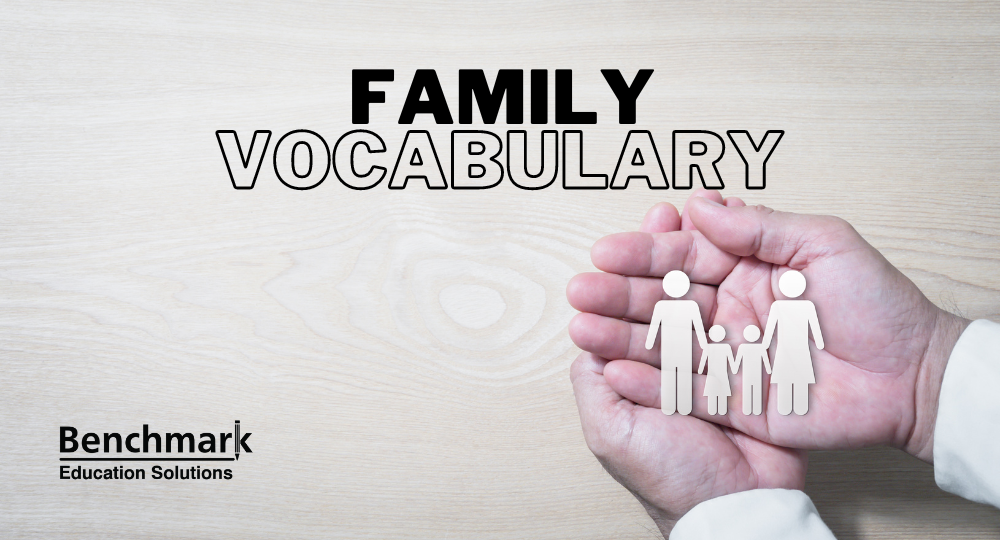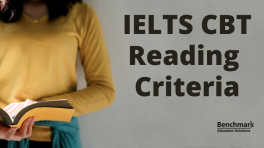

The topic of family is very common in everyday life and is highly likely to appear on some part of the IELTS speaking test. Therefore, it is crucial for you to have a good grasp of family vocabulary because you could be asked to speak about family members you admire or about your relationships with different family members.
Table of Contents
1. Family Members and types of Family Vocabulary
- Family Members and types of Family Vocabulary – Below is a list of the most common words used to describe family members and the different types of family. There is an activity for you to practice using the words in context.
- Ancestors – Family members from previous generations
- Auntie – The sister of your mother or father/ The wife of your mother or father’s brother
- Blood relative – Someone you are connected to by birth rather than marriage
- Brother – A male born to the same parents as you
- Cousin – The children of your aunties and uncles
- Descendants – A person who is related to you and lives after you, such as your children
- Distant relative – A relative who you do not have much contact with and who is not closely related to you
- Dysfunctional family – A family with conflict or problems amongst the members
- Extended family – The part of the family that includes cousins, grandparents, aunties, and uncles
- Grandchildren – Collective name for the children of your children
- Grandmother/Grandfather – The mother/father of your parents
- Grandparents – The collective name for the mother/father of your parents
- Grandson/Granddaughter – The son/daughter of your children
- Half-brother/Half-sister – A brother or sister that shares only one parent in common with you
- Immediate family – Your close family members such as children, spouse, parents
- In-laws – (mother-in-law, brother-in-law etc…) – The family of your husband or wife
- Next-of-kin – The person you are most closely related to. Often used as an emergency contact or for inheritance
- Nuclear family – Parents and children
- Parents – Collective name for mother and father
- Only child – A child with no brothers or sisters
- Relative – A person in the same family as you
- Sibling – A brother or sister
- Son – A male child
- Daughter – A female child
- Offspring – Children
- Sister – A female from the same parents as you
- Step – With regards to families, the word ‘step’ means that you are related to the person because your mother or father married a different person. The people in that person’s family then become your ‘step family’. For example, step-mother, step-brother, step-sister etc.
- Twins – Two babies born at the same time
- Uncle – The brother of your mother or father/ The husband of your mother or father’s sister
2. Activity 1 – Family Members and types of Family Activity
| Activity 1 |
- immediate family
- dysfunctional
- parents
- siblings
- children
- grandchildren
- descendants
- parents
3. General Vocabulary, Phrasal Verbs, and Family Idioms
General Vocabulary, Phrasal Verbs, and Family Idioms – There are many idioms and phrasal verbs used to discuss different aspects of a family, such as relationships. The following are some common words, phrasal verbs and idioms related to the topic of family. There is an exercise with some real IELTS questions for you to practice using the words and phrases in context.
- Adopt – To legally agree to permanently look after someone else’s child
- Black sheep of the family – A member of the family considered bad or rebellious in some way
- Breadwinner – The person who earns money to support a family
- Fall out with – To have an argument or disagreement with someone
- Family man – A man who is highly dedicated to his family
- Own flesh and blood – Emphasising that you are referring to a member of your family.
- Blood is thicker than water – Family relationships are the most important
- Foster – To legally agree to temporarily look after someone else’s child
- Get on well/badly with – Have a good/bad relationship with someone
- Get round someone – To persuade someone. Often a child ‘gets round’ their parents
- Give a telling off – To discipline someone. Usually, parents tell off their children.
- Hereditary – Something that is passed from one generation to the next
- Look alike – To have a similar appearance to someone
- Look up to – To admire
- Look after – To take care of
- Named after – To be given a name because of someone else in your family
- Older generation – A group of people not classed as young. Generally, they have children/grandchildren.
- Run in the family – When traits are shared amongst family members.
- Sibling rivalry – Fighting or conflict between brothers and sisters
- Single-parent – A parent raising a child by themselves
- Take after someone – Something you inherit from an older family member
- To raise/bring up a child/children – To take care of children from childhood to adulthood
- To support a family – To provide food and resources for a family to survive
- Upbringing – The way that a person was raised from childhood to adulthood
- Wears the trousers – The person who is in control
- Widow / Widower – A woman/man whose husband/wife has died
- Younger generation – A group of people not considered old. Generally young people, students and young adults
4. Activity 2 – General Vocabulary, Phrasal Verbs, and Family Idioms Exercise
| Activity 2 |
- extended family
- get on well
- brought up
- single-parent family
- parents
- look up to
- take after
- widow
- breadwinner
- brought up
- siblings
- blood is thicker than water
- support
For more practice, visit IELTS vocabulary for social media.














